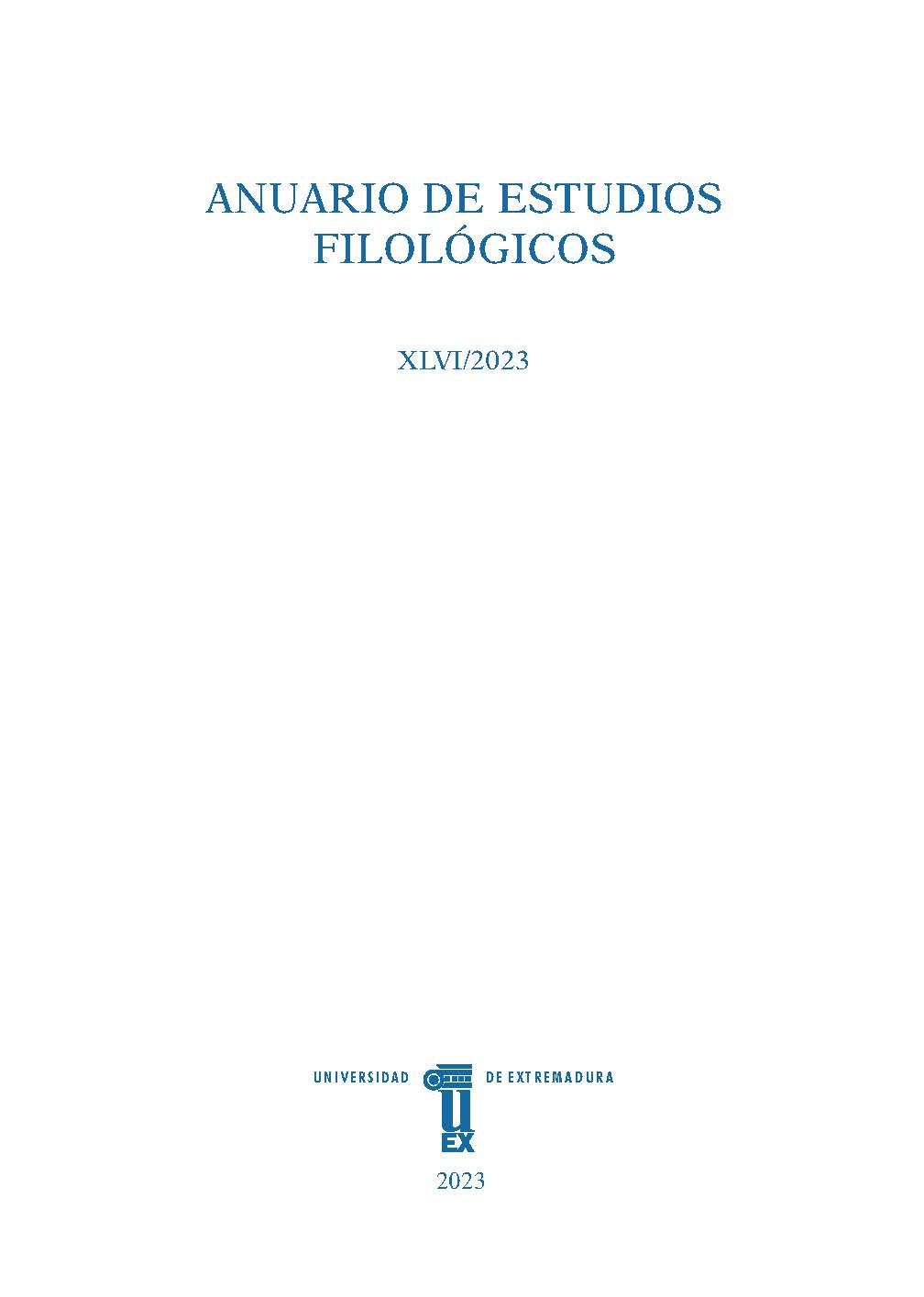The Abyss of Meaning: Disenchantment in Chinua Achebe’s Things Fall Apart
DOI:
https://doi.org/10.17398/2660-7301.46.259Keywords:
Things Fall Apart, Chinua Achebe, enchantment, disenchantment, Christianity, rationalityAbstract
Achebe’s magnum opus, Things Fall Apart, circles around a Nigerian community and the life of the Ibo people. It illustrates the life of local people before and after the British colonisation. The novel gives an account of Okonkwo’s life as a highly valued member of an Ibo clan, during the colonisation period. In this article, I intend to argue that the life of this clan was enchanted before colonisation. Later, I seek to elaborate on how this enchanted life is affected by Western civilisation and Christianity and how these elements disenchanted the Ibo people’s worldview. The liveliness of matter for Ibo people and the immateriality of objects for Christians contributed to two opposing ontologies. While Western ontology seeks to define, limit, and measure everything, the Ibo tradition gives space to the elements of magic, wonder, and fear. The sheer forces of Western rationality and Christianity served as potent elements that drained the Ibo culture of meaning. Furthermore, I posit that the emergence of Western tradition within Ibo culture caused Okonkwo’s suicide and identity crises.
Downloads
References
ABD-RABBO, Muna (2019): «Overlapping Character Variations in Chinua Achebe’s Things Fall Apart». Journal of Narrative Theory, 49.1, 55-81 (https://doi.org/10.1353/jnt.2019.0002).
ACHEBE, Chinua (1994): Things Fall Apart. London: Anchor Books.
ANSAH, Richard & SEGBEFIA, Michael (2022): «Elements of philosophy in Chinua Achebe’s Things Fall Apart (1958)». Research Journal in Advanced Humanities, 2.3, 36-48 (https://doi.org/10.58256/rjah.v2i3.716).
BENNETT, Jane (2001): The Enchantment of Modern Life: Attachments, Crossings, and Ethics. London: Amsterdam UP.
BENNETT, Jane (2004): «The Force of Things: Steps toward an Ecology of Matter». Political Theory, 32.3, 347-372 (http://www.jstor.org/stable/4148158).
BENNETT, Jane (2010): Vibrant Matter: A Political Ecology of Things. New York: Duke UP.
BENNETT, Jane & CHALOUPKA, William (1993): In the Nature of Things: Language, Politics, and the Environment. London: Amsterdam UP.
BOKOTIABATO MOKOGNA, Zéphirin (2019): «Insight into the Ibo Socio-Traditional Organization in Chinua Achebe’s Arrow of God and Things Fall Apart». International Journal of Linguistics, Literature and Translation, 2.1, 139-146.
CURRY, Patrick (2012): «Enchantment and Modernity». PAN: Philosophy, Activism, Nature, 12, 76-89.
DUBE, Saurabh (2002): «Introduction: Enchantments of Modernity». South Atlantic Quarterly, 101.4, 729-755 (https://doi.org/10.1215/00382876-101-4-729).
FAWOLE, Adebola (2018): «Are Cultural Dimensions Indicators of Corrupt Practices? Insights from Achebe’s Things Fall Apart, No Longer at Ease and Anthills of the Savannah». Journal of Literary Studies, 34.2, 13-26 (https://doi.org/10.1080/02564718.2018.1466447).
GOBLE, Erika (2017): «Beyond Human Subjectivity and Back to the Things Themselves: Jane Bennett’s Vibrant Matter». Phenomenology &Amp; Practice, 11.2, 70-78 (https://doi.org/10.29173/pandpr29352).
HOHMANN, Jessie (2021): «Diffuse subjects and dispersed power: New materialist insights and cautionary lessons for international law». Leiden Journal of In-ternational Law, 34.3, 585-606 (https://doi.org/10.1017/s0922156521000157).
INNES, Catherine Lynette (1990): Chinua Achebe. Cambridge: CUP.
INNES, Catherine Lynette & LINDFORS, Bernth (1978): Critical perspectives on Chinua Achebe. Washington: Three Continent Press.
IRELE, Francis Abiola (2000): «The Crisis of Cultural Memory in Chinua Achebe’s Things Fall Apart». African Studies Quarterly, 4.3, 1-40
JOVANOVIĆ, Gordana 2021: «New Materialism, Technophilia and Emancipation». International Review of Theoretical Psychologies, 1.1, 245-262 (https://doi.org/10.7146/irtp.v1i1.127091).
KAMMAMPOAL, Bawa & LAAR, Suuk (2019): «The Kola Nut: Its Symbolic Significance in Chinua Achebe’s Things Fall Apart». International Journal on Studies in English Language and Literature, 7.8, 26-40 (http://dx.doi.org/10.20431/2347-3134.0708003).
KORANG, Kwaku Larbi (2011): «Making a Post-Eurocentric Humanity: Tragedy, Realism, and Things Fall Apart. » Research in African Literatures, 42.2, 1-29 (https://doi.org/10.2979/reseafrilite.42.2.1).
LEACH, Josephine (1971): «A Study of Chinua Achebe’s Things Fall Apart in Mid-America». The English Journal, 60.8, 1052-1056 (https://doi.org/10.2307/814026).
LEONARD, Nicholas (2020): «The Arts and New Materialism: A Call to Stewardship through Mercy, Grace, and Hope». Humanities, 9.3, 1-34 (https://doi.org/10.3390/h9030084).
MALEKI, Nasser & NAVIDI, Maryam (2011): «Foregrounding Achebe’s Things Fall Apart: A Postcolonial Study». Canadian Social Science, 7.6, 10-15 (http://dx.doi.org/10.3968/j.css.1923669720110706.078).
MEREWETHER, Jane (2023): «Enchanted animism: A matter of care». Contemporary Issues in Early Childhood, 24.1, 20-31 (https://doi.org/10.1177/1463949120971380).
MENGARA, Daniel M. (2019): «Colonial Intrusion and Stages of Colonialism in Chinua Achebe’s Things Fall Apart». African Studies Review, 62.4, 31-56 (https://doi.org/10.1017/asr.2018.85).
MSISKA, Mpalive-Hangson (2009): «Things Fall Apart. A resource for cultural theory». Interventions, 11.2, 171-175 (https://doi.org/10.1080/13698010903053030).
NEFF, Ian (2020): «Vital and enchanted: Jane Bennett and new materialism for nursing philosophy and practice». Nursing Philosophy, 21.2 (https://doi.org/10.1111/nup.12273).
OKUNOYE, Oyeniyi (2010): «Half a Century of Reading Chinua Achebe’s Things Fall Apart». English Studies, 91.1, 42-57 (https://doi.org/10.1080/00138380903355189).
OUZGANE, Lahoucine & OKOME, Onookome (2009): «Encounters and Enga-gements with Things Fall Apart». Interventions, 11.2, 135-140 (https://doi.org/10.1080/13698010903052974).
OKUROĞLU ÖZÜN, Şule & BASKALE, Nagihan (2019): «The Distortion of Cultural Identity in Chinua Achebe’s Things Fall Apart». Trakya Üniversitesi Edebiyat Fakültesi Dergisi, 9.18, 86-99 (https://doi.org/10.33207/trkede.597888).
PROCTER, James (2009): «Reading, Taste and Postcolonial Studies». Interven-tions, 11.2, 180-198 (https://doi.org/10.1080/13698010903053253).
RAMSAY, Nissa (2009): «Taking-place: refracted enchantment and the habitual spaces of the tourist souvenir». Social &Amp; Cultural Geography, 10.2, 197-217 (https://doi.org/10.1080/14649360802652111).
SALAMI, Ali & HEKMATSHOAR TABARI, Bamshad (2018): «Things Fall Apart and Chinua Achebe’s Postcolonial Discourse». International Journal on Studies in English Language and Literature, 6.3, 19-28 (https://doi.org/10.20431/2347-3134.0603004).
SALER, Michael (2006): «Modernity and Enchantment: A Historiographic Review». The American Historical Review, 111.3, 692-716 (https://doi.org/10.1086/ahr.111.3.692).
SEARLE, Alison (2007): «The Role of Missions in Things Fall Apart and Nervous Conditions». Literature and Theology, 21.1, 49-65 (https://doi.org/10.1093/litthe/frl061).
VAN WYK, Alan (2012): «What Matters Now Review of Jane Bennett, Vibrant Matter: A Political Ecology of Things». Cosmos and History: The Journal of Natural and Social Philosophy, 8.2, 130-136.
WAFULA, Richard M. & WANJALA, Chris L. (2017): «Narrative Techniques in Chinua Achebe’s Things Fall Apart». Journal of Social Sciences, 50.1-3, 62–69 (https://doi.org/10.1080/09718923.2017.1311740).
WEST-PAVLOV, Russell (2022): «Modernisms and Modernities in Achebe’s Things Fall Apart». English Studies in Africa, 65.1, 72-86 (https://doi.org/10.1080/00138398.2022.2055860).
WILKINSON, Darryl (2016): «Is There Such a Thing as Animism?». Journal of the American Academy of Religion, 85.2, 289-311 (https://doi.org/10.1093/jaarel/lfw064).



